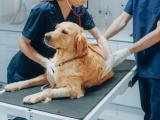Jul 15, 2011 (CIDRAP News) – A South Dakota beef company yesterday announced that it would become the first processor to incorporate testing for six lesser-known pathogenic Escherichia coli strains into its food safety program.
Beef Products, Inc. (BPI), based in Dakota Dunes, S.D., said in a press release that now that test methods have been developed for the six strains, it will include them in its test-and-hold program. It said the beef products will be sold or used for raw ground beef only if tests show no contamination for E coli O157:H7 and the additional E coli strains.
Currently E coliO157:H7 is the only strain classified by the US Department of Agriculture (USDA) as an adulterant in ground beef, but other strains, known as "the big six," have emerged as food safety threats in recent years. The US Centers for Disease Control and Prevention (CDC) lists sixnon-O157 Shiga-toxin producing E coli (STEC) strains that are pathogenic for humans: O26, O111, O103, O121, O45, and O145. The agency says O26, O11, and O103 are the non-O157 strains that most commonly cause illness in the United States.
Food safety advocates have repeatedly pushed the USDA to classify pathogenic non-O157 strains as adulterants and test for them. The USDA is considering whether to regulate the six strains in beef products and has made progress on validating new tests to detect them. A rule to regulate the strains is under review at the Office of Management and Budget (OMB).
Meat producers are bracing for future federal monitoring of the strains, according to an earlier report.
BPI said in its press release that new tests can detect the strain and that a sufficient supply of testing kits is now available.
Craig Letch, director of quality assurance for BPI, said in the statement, "The recent situation in Europe convinced us that it was time to add tests for these other potentially harmful pathogens now. "Europe's outbreak, centered in Germany with a cluster in France, is linked to fenugreek sprout seeds thought to be contaminated with the rare E coli O104:H4 strain.
"While this additional testing will add significantly to the cost of BPI’s current hold and test program, our decision to voluntarily start this testing is consistent with our overall commitment to food safety and quality," he said.
US Rep Rosa DeLauro, D-Conn., who has often worked on food safety legislation, yesterday commended BPI for its decision to test for the six additional E coli strains. "Beef Products, Inc. is the world's largest producer of lean beef products and has taken a leading step in protecting American consumers from Shiga toxin-producing E coli," she said in a press release. "We know that these types of non-O157 Shiga toxin-producing E coli are dangerous, causing over 100,000 illnesses every year in the United States."
Bill Marler, a foodborne illness attorney based in Seattle, said in his blog yesterday that the Obama administration, the USDA, and the OMB have run out of excuses for not declaring the six E coli strains as adulterants. "It is good to see that someone (BPI and others) in the meat industry have risen to the challenge," he wrote.
In October 2009 Marler filed a petition asking the federal government to classify the six additional E coli strains as adulterants.
See also:
Jul 14 Beef Products, Inc. press release
Nov 2, 2010, CIDRAP News Scan
Jul 14 Marler Blog post
CDC information on E coli O157 and other STEC strains

















